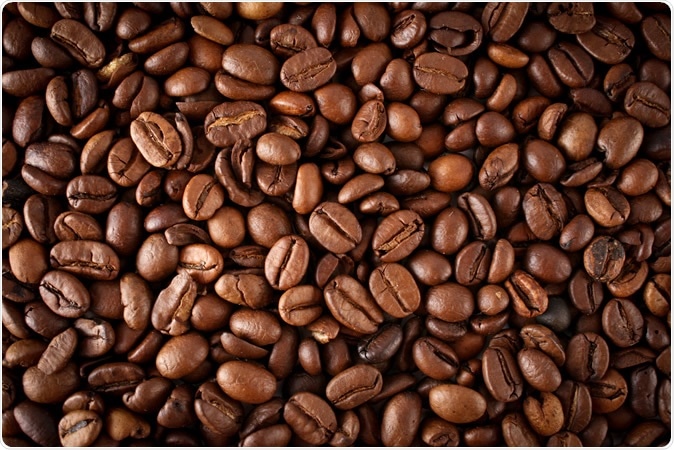What this means, for ordinary consumers, is a need to understand the environmental impact of buying such products, which are obtained through sources that lead to forest destruction and the increased breeding of mosquitoes. It is noteworthy that many of these commodities are directed at wealthy consumers.

Global demand for products such as coffee, tobacco, cocoa, timber and cotton is depleting the rainforests and creating conditions where mosquitoes thrive. Image Credit: Szymon Apanowicz / Shutterstock
Industrial agriculture and deforestation
Agribusiness, or industrial agriculture, is a distinct form of agriculture characterized by a high input-land ratio and intensive use of land, with fewer fallow periods. The inputs include chemical fertilizers and pesticides, irrigation, and mechanization. The proponents of agribusiness claim the yield is more than doubled using these techniques. However, it is true that this requires increasingly more inputs to keep pace with the consumption of rich countries, and that most of the increased yield is not being used to reduce global malnutrition.
It is estimated that up to 70% of deforestation in South America is due to agribusiness, including soy, palm oil, and cattle breeding on ranches. Most of these activities occur in developing countries to produce goods that are consumed by rich countries. Today, deforestation is driven less by the spillover of rural populations into forest territory and more by the growth of cities and the need to produce goods for the global market.
Leave the forests alone!
Earlier studies have shown that cutting down rainforest or disturbing its environment in other ways is a risk factor for malarial transmission because it creates an ideal habitat for mosquitoes, with a lower predator risk and warmer conditions. The current study relates to the disruption of rainforest ecology to the worldwide demand for certain goods, which in turn promotes the breeding of malaria-carrying mosquitoes.
The study and its findings
The investigators from the University of Sydney looked at how the increasing demand for goods by consumers far away from the location where these goods were grown or procured was driving a relentless business to feed that demand. The route they followed was, as senior author Professor Manfred Lenzen explains, "We achieved this by quantitatively relating malaria incidence first with deforestation, then to primary commodity production, which we then connected to global supply-chain networks and ultimately to worldwide consumer demand."
In other words, they traced the links of agribusiness with the number of malaria cases, using a stepwise approach. The first stage was to find out how the incidence of malaria was linked to deforestation. Next, they examined how the ruin of forests was related to the need for forest-derived commodities or goods grown on erstwhile forest land. This was then analyzed in light of the volume of these commodities taken up by global supply chains. This was finally linked to the worldwide requirement for these goods using an analytic method that is commonly used by statistical researchers, called multi-region input-output (MRIO) analysis.
This allowed the investigators to dig deeper than mere correlations between the malaria incidence and tree cutting by looking for the root cause. In the words of researcher Arunima Malik, "This study is the first to assess the role of global consumption in increasing deforestation and, in turn, malaria risk. Unsustainable human consumption is clearly driving this trend."
Malik explains, "This work goes beyond simple incidence mapping and correlations, in that it unveils a global supply-chain network that links malaria occurring in specific locations because of deforestation with globally dispersed consumption."
Implications
In the words of researcher Manfred Lenzen, "We need to be more mindful of our consumption and procurement, and avoid buying from sources implicated with deforestation, and support sustainable land ownership in developing countries."
The findings of the study should be harnessed to a global change in the way consumers buy specific goods. This can help to reduce malaria incidence all over the world by bringing in regulation to change the way these global supply chains import products from areas in which the malaria impact is high.
Such regulations include the need to label products with respect to their origin, providing certification that they are obtained with minimal ecological impact, negotiations between environmentalists and supply chains, and setting procurement standards that will be beneficial for the environment and drive sustainable development. Legal options should also be utilized if necessary, some experts feel. For instance, another researcher Leonardo Chaves says legal mechanisms could be a good action to achieve malaria control.
Initiating such mechanisms has already met with resistance in Brazil, where agriculture-based business corporates are against new laws that would mean landowners have to conserve a part of their land by allowing the growth of native vegetation only.
Chaves counters such criticism: "If we lose this land to agricultural use, we could greatly increase malaria risk, and the bill of each case of malaria in the Amazon is paid by poor and vulnerable families in this region," Dr. Chaves said. "Development never reaches the small rural producer; it just makes illness."
Journal reference:
Chaves, L.S.M., Fry, J., Malik, A. et al. Global consumption and international trade in deforestation-associated commodities could influence malaria risk. Nat Commun 11, 1258 (2020). https://doi.org/10.1038/s41467-020-14954-1